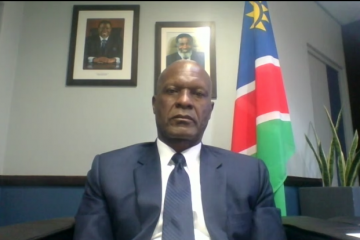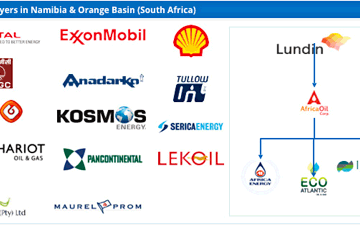Is YouTube to universities what Uber is to the taxi trade?
Recently our company advertised for a minimum wage internship for a graduate to do an exciting digital marketing project over the summer. We are small (30 staff and contractors), UK-based, innovative, pre-revenue and somewhat quirky. I was amazed by the quality of the response – over 100 graduates applied in a four day period – and they included students from top universities all over the world, a top travel blogger with hundreds of thousands of followers and even the former social media advisor to a senior politician.
I have always enjoyed our summer internship programs – these under-graduate students add a sense of fun, social media nous and most importantly that blissful ignorance of what not to say, often revealing intriguing insights.…. And we are proud of the fact that many our student interns have since gone on to get excellent jobs not least because we let them get their teeth into serious projects that matter to the company – rather than getting them to make the coffee.
Just as Uber disintermediates the taxi industry and iTunes decimated the record labels, Google, Youtube and Wikipedia are increasingly sending universities to the same place as the fax machine, the VCR and the horse-drawn cart.
So it was with some surprise that I read in the Sunday Times today that the outspoken headmistress of St Pauls Girls School, Clarissa Farr, is saying that her brightest students are increasingly going straight into the work force rather than to university.
As St Pauls costs £24,000 per year, its students are generally from affluent families, so it is not about fear of repayment of student loans that is causing them to shy away from universities. Nor is it about fear of the competition, St Pauls is the finest academic secondary institution in the UK, beating over 3,500 other schools to top in the league tables in three of the last five years. And in that ultimate test of British academic acceptance – over half of its sixth formers got into Oxford and Cambridge last year. Ms Farr went on to say that top firms like Google, Microsoft and the Big Four accountants – are recruiting talented 18 year olds straight out of school, so that they can come in raw and develop relevant skills – something these employers feel universities are failing to do.
Then I happened to have a chat with the rather grand doyen of our local sports club. To my surprise he told me he did not go to university – he went into a Big Four Accounting firm straight from school and by 38 was CFO of a large listed conglomerate and retired in his late 50’s as CEO of a FTSE100 company. He mentioned a dinner he attended almost 40 years ago – where the Chairman of the predecessor of the Institute of Chartered Accountants of England and Wales (ICAEW) invited a number of the most senior CFO’s to discuss changes in required educational qualifications to enter the accounting profession. Of the ten CFO’s invited – eight had not gone to university. There was a guffaw as the chairman was saying how ICAEW would become strongly biased towards employing articled clerks with an undergraduate degree before they entered the accounting profession – and he looked round a table that comprised the most successful finance practitioners his organisation had produced and struggled to find a degree between them.
George Osborne seems to agree, the government is prepared to pay up to £15,000 for apprenticeship training and £3,500 towards salaries, while mooted changes in subsistence grants will saddle future graduates with up to £50,000 in debt.
So it looks like the pendulum that swung inexorably towards free universally accessible university education and its resultant intellectual snobbery against the self-educated Mondeo Man on whom Tony Blair built his election successes – is finally swinging the other way. Tories have decided they can’t afford the indulgence – and they found that students don’t vote for them anyway.
How does one explain to an entrepreneurial student that slaughtering livestock in one’s residence room and carrying a pig’s head around campus, might be acceptable in rural Transkei, but would not only disconcert one’s more Euro-centric room-mate but also cause dysentery?
This week I had further reason to reflect on my own university career in South Africa, when I heard the sad news of the passing of a mentor from my student leadership days, the legendary Professor Martin West. I attended few lectures, learning little academically, getting an underwhelming 3rd for my BCom degree and then proceeded to fail my post graduate accounting diploma er…. twice. On this basis, some would argue that I wasted six years of my life and racked up a large student loan unnecessarily. Was it all worth it? …. Absolutely…. in the mid 1990’s Mandela’s newly democratic Rainbow Nation was a magnet to the world’s hip and powerful. In the final two years in which I was involved in student leadership, our university was visited by Madiba himself, who lived less than a mile away, Desmond Tutu was another regular and the Kennedys’ – about 20 of them – popped in for morning tea. Our University Catholic Society travelled 800 miles to hear Pope John Paul II say Mass to half a million of the faithful where I have never seen a such vast sea of double decker busses. Neither have I encountered anyone with such a powerful benign presence – surprising considering how much we loathed his anachronistic morality as we watched 5 million South Africans die of AIDS over the next decade. Our university choir sang for Queen Elizabeth II at the beautiful St George’s Cathedral in Cape Town. Perhaps the coolest for me – as an untalented cricket obsessive – was the fact that Duncan Fletcher was our university coach in the early 1990’s. Before coaching England to win the Ashes in 2005 – he inspired our inexperienced, amateur first team to become the best club in the country against better resourced clubs laden with professional Test cricketers. That he told me to give up cricket and take up scoring inspired me to ditch my law degree and become an accountant. I told him his perception would take him far in life.
On a more serious note, the cultural challenges that we faced in a raw multi-racial microcosm of a conflicted-riven South Africa stumbling towards democracy, taught us far more than any Harvard MBA could have. How does one explain to an entrepreneurial student that slaughtering livestock in one’s residence room and carrying a pig’s head around campus, might be acceptable in rural Transkei, but would not only disconcert one’s more Euro-centric room-mate and but also cause dysentery? What lecture topic could prepare any 22-year-old to defend an academically brilliant student who was to be financially excluded because their parents lived in a corrugated iron shack without electricity and could not afford to buy them clothes – let alone pay their tuition fees? What accounting tutorial could give one the fortitude to council a psychologically-shattered student, who had left their community as the first of its own to get to university, only to find the gulf between Bantu education under a tree and the First-World ivory tower was just too wide – as they faced their family’s looks of dashed expectation on their return home?
So, I cannot be more grateful for my university education: I realize now that its value lay, not in the lectures, but in experiences and the lifelong relationships forged while living through a period of unique historical importance. Its different for today’s students – in their apathetic new world it is harder for them to experience history first hand in the way that we did – when the Lib Dems agreed with the Tory’s to force through tuition fees – sending a generation of Millennials into debt until their middle age – the students hardly lifted a finger in response – to the government’s amazement: Mervin King, the former Governor of the Bank of England predicted a high death toll in violent response to austerity measures: Universities decreasing sense of purpose is becoming an existential threat. Why would a school-leaver shell out £9,000 per year for a Maths degree, when MIT broadcasts its lectures online? Just as Uber has disintermediated the taxi industry and iTunes decimated the record labels, Google, Youtube and Wikipedia are increasingly sending universities to the same place as the fax machine, the VCR and the horse-drawn cart.
Our company is considering starting an apprentice program for school leavers joining in this going trend of university education disintermediation. But I am nervous …. There is a substantial commitment required to develop the skills of an 18-year-old and much as it is socially desirable and we will have a lot of fun doing it, we have shareholders and we must always ask if it is the best use of management time.
We would be interested to hear the thoughts of students, school-leavers, lecturers and other small business managers who have run internships.
By Stephen Larkin, originally on LinkedIn.



0 Comments